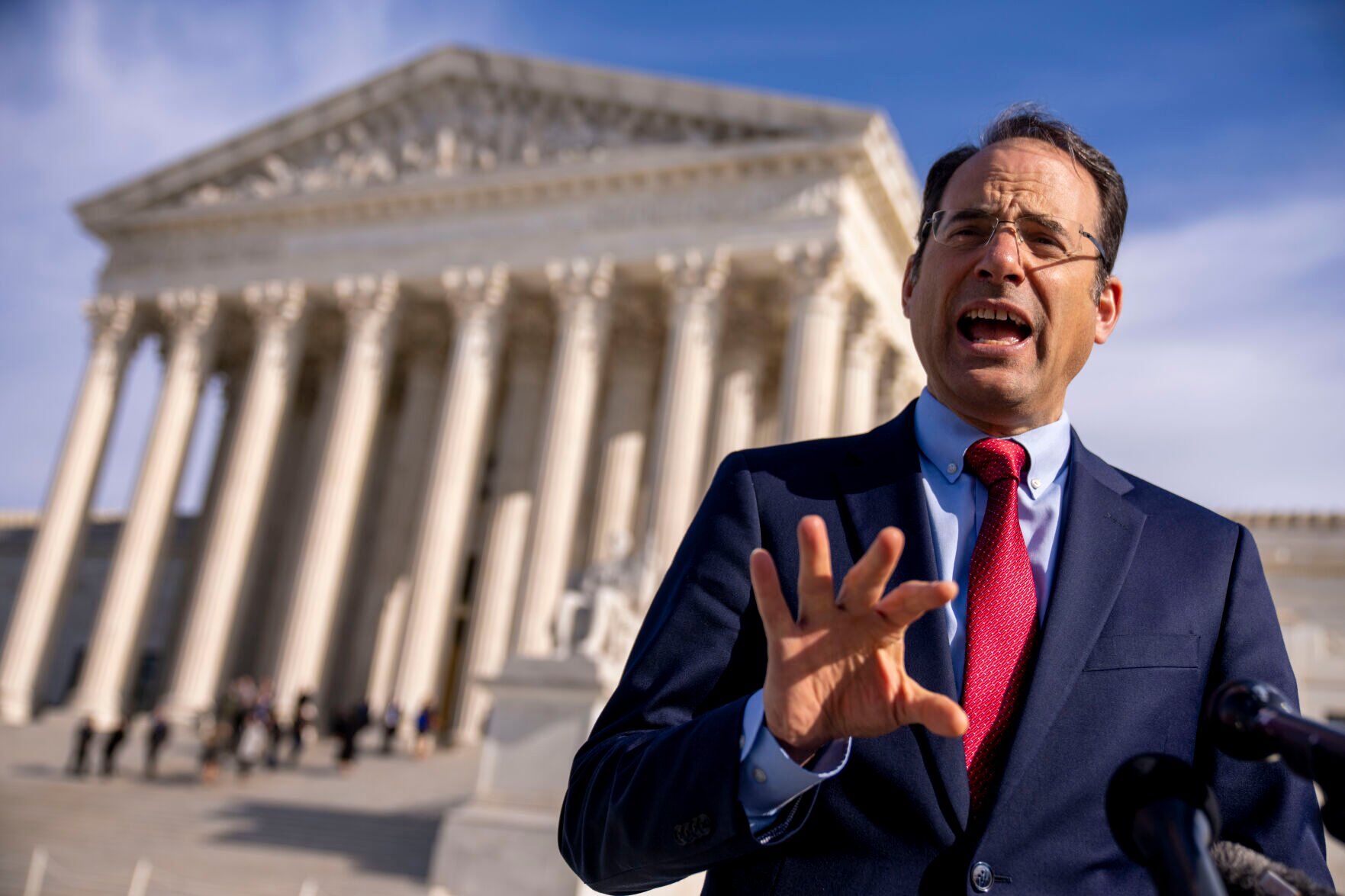SCOTUS hears challenge to Colorado stalking law, with questions about modern ‘sensitivity’

For nearly two years, Billy Raymond Counterman sent a musician thousands of unsolicited Facebook messages, carrying on a one-way conversation as if he had a relationship with her.
Then things escalated.
“Was that you in the white Jeep?” “I’m currently unsupervised. I know, it freaks me out too.” “Five years on Facebook. Only a couple physical sightings.” “Die. Don’t need you.”
Six years after an Arapahoe County jury convicted Counterman of stalking, members of the U.S. Supreme Court heard his appeal on Wednesday. The legal question is whether prosecutors needed to prove Counterman intended his messages to be threatening. Accordingly, some of the justices appeared to believe juries could not simply look at the stalking behavior itself, given how “sensitive” Americans have become to misconduct.
“We live in a world in which people are sensitive, and maybe increasingly sensitive,” said Justice Neil M. Gorsuch during oral arguments. “What do we do in a world in which reasonable people may deem things harmful, hurtful, threatening – and we’re gonna hold people liable willy-nilly for that?”
Chief Justice John G. Roberts Jr. even suggested that one of Counterman’s messages to the musician – “Staying in cyber life is going to kill you. Come out for coffee” – sounded like a benign invitation for professional development.
“The threat in that,” responded Attorney General Phil Weiser, “is, ‘If you don’t come out and meet me, your life’s in danger.'”
Under Colorado’s stalking law, it is illegal to repeatedly contact or communicate with someone “in a matter that would cause a reasonable person to suffer serious emotional distress.” There is no requirement that the alleged stalker intend their contacts to cause such distress.
Weiser argued to the Supreme Court that an intent requirement would be detrimental to holding stalkers accountable, as “delusional” stalkers could genuinely claim they were in a relationship with their victim, while “devious” stalkers could say their threatening messages were jokes.
Counterman’s attorneys, in contrast, maintained a defendant’s mental state is necessary to prevent convictions based on a stalking victim’s “misunderstanding” of their stalker’s words. Multiple members of the Supreme Court appeared to agree the defendant’s intent should at least be a factor.
“How could it not be part of the context?” wondered Gorsuch.
Counterman had already incurred multiple federal charges for threatening women by the time he initiated contact with Coles Whalen, a singer-songwriter from Colorado. His Facebook messages to her were alternately mundane, voyeuristic and aggressive. She blocked him multiple times, but Counterman persisted in writing to her.
“Before, Coles never cancelled or turned down shows, but – paralyzed by anxiety and fear – she began cancelling shows and turning down new opportunities, first in Denver, then elsewhere,” her lawyers wrote to the Supreme Court. “She started carrying mace and applied for a concealed handgun permit.”
Police then arrested Counterman. Although prosecutors initially charged him under the provision of Colorado’s stalking law that outlaws “credible threats,” the government proceeded to trial only on the charge that Counterman caused Whalen serious emotional distress. The trial judge ruled that Counterman’s statements could rise to the level of a “true threat,” which does not have First Amendment protection, and allowed the case to go to a jury.
The Court of Appeals subsequently agreed prosecutors did not have to prove Counterman intended to communicate a threat to Whalen. The appellate judges largely relied on a 2020 decision of the Colorado Supreme Court that laid out a rubric for determining whether a statement is objectively a threat based on context.
“In the absence of additional guidance from the U.S. Supreme Court,” wrote Justice Monica M. Márquez at the time, “we decline today to say that a speaker’s subjective intent to threaten is necessary for a statement to constitute a true threat for First Amendment purposes.”
Applying the state Supreme Court’s test, a three-judge panel for the Court of Appeals believed Counterman’s messages, in context, were threats that did not merit First Amendment protection.
On appeal to the U.S. Supreme Court, Counterman’s attorneys warned about the consequences of convicting someone who, due to mental illness, had no apparent idea his victim considered the encounter to be threatening.
“Criminalizing misunderstanding is especially dangerous in an age when so much communication occurs on social media,” argued lawyer John P. Elwood. “It chills expression by imposing prison time on speakers who do not tailor their views to suit their audience.”
Twenty-five other states and the District of Columbia supported Colorado, explaining they need tools to address stalking before it escalates into violence. Three scholars of the First Amendment also wrote that Colorado’s stalking law properly criminalized Counterman’s repeated, unwanted conduct, and did not offend the free speech principles of the First Amendment.
Still, members of the Supreme Court expressed reservations.
“I know there are delusional people who kill individuals and we want to protect people from that,” acknowledged Justice Sonia Sotomayor. “But at what point do we do it by defining crimes without some sort of knowledge element?”
Similarly, Justice Clarence Thomas focused on Colorado’s requirement that a “reasonable person” find the stalking to be distressing, and returned to the idea that society is more “sensitive” now.
“We’re more hypersensitive about different things now and people can feel threatened in different ways,” he said. “What if it’s now that people are more sensitive, that that is now considered the ‘reasonable person’?”
The case is Counterman v. Colorado.














